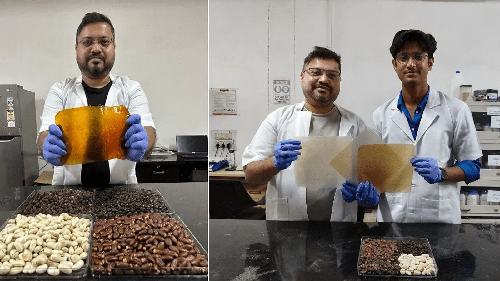In a major win for sustainability, a team of Indian scientists has developed a revolutionary, plastic-free packaging film made from agricultural waste—specifically the seeds of jackfruit and jamun. The film is fully biodegradable, completely dissolving back into the earth within just 60 days, leaving behind no toxic residue or microplastics.
The innovation, spearheaded by researchers at the National Institute of Technology (NIT) Rourkela, transforms overlooked fruit byproducts into a viable, eco-friendly alternative to conventional plastic food wraps.
The team, led by Dr. Preetam Sarkar, Associate Professor at the Department of Food Process Engineering, focused on the high starch content in the seeds of jackfruit and jamun.
“These seeds are a rich source of natural polymers,” explained Dr. Sarkar. “We’ve created a durable, flexible film base that, unlike petroleum-based plastics, can return to nature in just two months.”
The biodegradable film is not only a green alternative but also a “smarter” one. Researchers enhanced the film with natural nanoparticles derived from materials like chitosan and zinc oxide, giving it antimicrobial and antioxidant properties.
Lab trials have shown impressive results, with the protective coating significantly extending the shelf life of fresh produce.
- Tomatoes coated with the film stayed fresh for up to 15 days longer than uncoated ones.
- Upon degradation, the film breaks down into nutrients that can enrich the soil, completing a true circular economy loop.
This groundbreaking technology promises to tackle India’s massive plastic waste problem by turning agricultural waste into a valuable resource, paving the way for a more sustainable future for food packaging.







